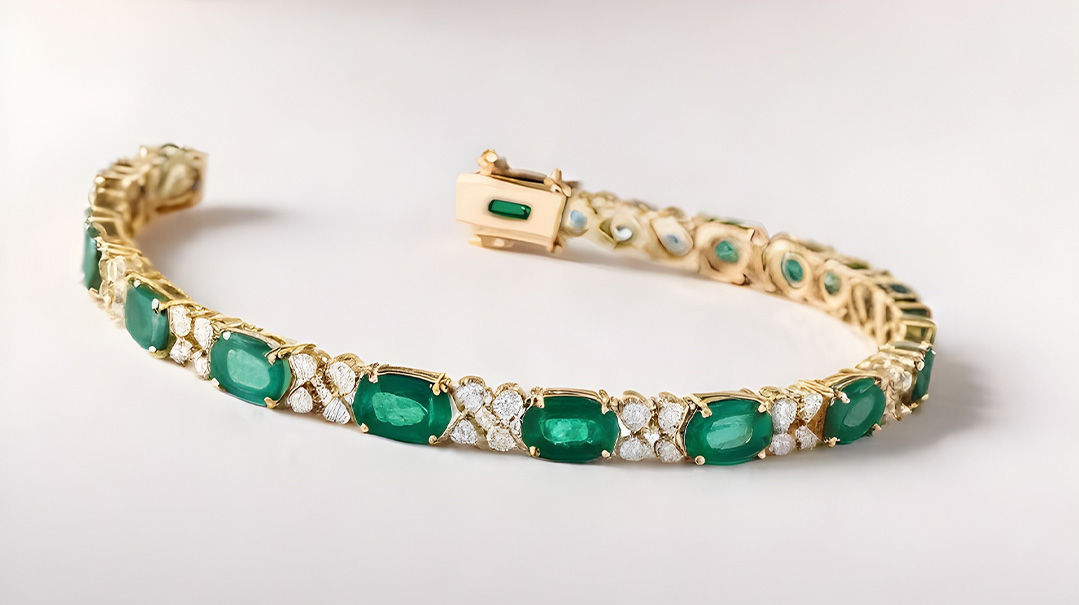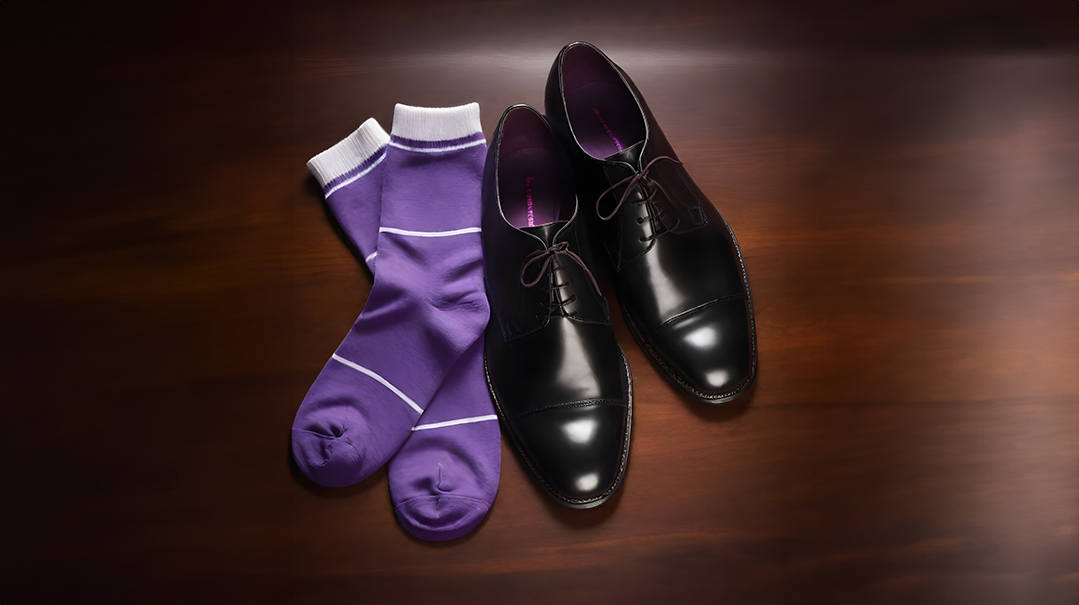On Paper

She watches him fearfully as he goes to pieces berating himself: the self-blame, self-hatred, the regret, the desperation

“I’ll be late…”
Her phone vibrates on the desk. Lea glances at the words as the text briefly lights up the screen, then focuses on the client in front of her.
“I really see what you mean,” Tamar is saying. “See what I mean, I mean.”
“I’m just reflecting what I’m hearing,” Lea says. “It’s you who’s doing the work.”
“I am.” Tamar can’t help smiling. “I think I finally am.”
Lea sees her client out through the side entrance, watches the woman take slow, thoughtful steps, and look up at the maple tree in the yard as if seeing it for the first time.
Once she’d been like that, too — when she was first training to be a therapist, learning about herself, peeling back the layers she hadn’t even known were protecting her heart. On training days she’d walk home slowly, hugging her newfound knowledge while the world recreated itself in front of her: sharper, more vivid, greener, bluer.
She still gets a glimmer of that heightened awareness, sometimes in the therapy room with a client, sometimes while talking with her supervisor, but mostly —
She looks down at her phone.
— mostly, she feels like she’s reached an impasse.
She grabs the phone and fires back, Dinner?
She straightens the therapy room while she waits. When he doesn’t respond after five minutes, she dials her husband.
“Yes?” David says, then, “Sam’s ordering in dinner for the office so you don’t need to make, thanks.”
She doesn’t bother telling him that she’s already made dinner. Years of putting dinner away in sad, small containers in the fridge have hardened her. Portion, freeze, defrost, reheat. If some of the heart evaporated in that sequence, she couldn’t help it.
Well, she’s hungry now. Lea goes to the kitchen: chromes, blinding whites, that gorgeous backsplash of the Alps, and state-of-the-art appliances. There are perks to being married to David Levine, CEO of Raleigh Realty.
There are, she tells herself as she ladles the soup into her lone bowl.
From her seat at the island, she spots the maple tree in the yard. Tamar is doing the work she has to, at last. Lea knows that she herself is good at what she does, that she gets through to her clients. She knows what she means to them.
But —
She slides one fish fillet onto a plate, takes a small helping of buttered potatoes, and looks into her lone plate.
—sometimes she wonders what she means to her own husband.
“HI,it’s Toby.”
On the intercom screen, Lea sees a colorful headscarf billowing in the breeze. Toby. Right. The girl from their apartment at the edge of the garden. David had decided to rent it out last year in one of those spurts of prudence he sometimes got.
Lea buzzes open the door.
The fresh-faced kallah stands in the doorway, holding out a key. “Mrs. Levine, we’re leaving for a couple of days. We’re going up to the mountains. I guess you could call it a honeymoon.” She blushes. “I wanted to ask if you could open the door for our washing machine delivery tomorrow.”
“Sure,” Lea says, “and I have a spare key to your apartment, so you can keep yours.”
“Oh,” the girl says, and stiffens a little. It must be disconcerting to think that someone else wields the key to her space.
“Have yourself a good trip,” Lea says.
“We will. I got these few days off work and Zalmy got us a car for the week.” Toby indicates a small rental car sitting in the driveway.
“Where did you say you’re going?”
“Lake George, the Adirondacks. We rented an Airbnb, a cabin on the lake.” Her eyes dance.
“Good for you,” Lea murmurs.
She closes the door. Look at that girl rhapsodizing about a simple trip. Their Yoni had taken Shifra to Dubai the summer after their wedding.
She knew all the axioms; she knew more than anyone that money didn’t buy happiness and happiness didn’t come from things. Neither of them had come from money. David had built up a business from the bottom up — and up, and away. She’s grateful, she is, but… From the screen in the kitchen, she sees a small car bump its way out onto the street. She’s thinking of a million years ago, wishing for the simplicity of being 22, just them, just a little car that isn’t even theirs, the great America yielding to its tires, a relationship breathing with potential inside.
The door clicks and David finally walks in. He throws off his coat, undoes his tie; rigmarole of homecoming.
She’s still thinking about Toby and her sweet little honeymoon, aching for the simpler times; but had it ever been like that for them?
He walks into the kitchen, tall, broad-shouldered. People say this about David, that he has presence, that he’s a force in the room. It’s not just his heft but something in his temperament.
“How was your day?” she asks by rote.
She’s waiting for a grunt, or even a blow-by-blow description of a deal. He sometimes goes on about the intricacies of a new project: the planning, the permits, the technical specs. She finds it tiring and tedious to listen to.
Tonight, he looks at her as if taking her in, the strangest of looks in his deep-set eyes.
“Can we talk?”
Lea thinks of the paperwork waiting for her downstairs and a training on grief she wanted to check out. She nods anyway.
“Outside, please. I need air,” he says.
He always does; so much air, so much space. Sometimes she wonders if she’s the one making him claustrophobic.
She grabs a sweater; it’s cold. Who goes outside to talk in December?
David sits down on the wrought-iron bench. Lea takes the rocking chair. She looks around them at the manicured hedges, an undulating wave pattern. Unrealistic, Lea thinks suddenly, nature capitulating to artifice.
David starts to talk, his eyes somewhere on the rosebush. “Lea, I haven’t said anything until now because I was trying to save things, but I don’t know, it might just be over.” He juts his chin out, indicating the house, the garden, the property.
She stills the motion of the rocker and sits ramrod straight inside it, saying nothing.
“Bankrupt, the business is going bankrupt. It’s all over.”
Here, in the prettiest garden in Monsey, this big, strong man is losing it. He’s bellowing, talking to himself more than to her. “The game is over, David… You’re gonna lose it all, every one of your assets. No more house, no more status, no more supporting the boys in Israel, in Lakewood….”
Lea melts back into the chair and lets it do its rock-rock thing again all the while that he’s railing.
She watches him fearfully as he goes to pieces berating himself: the self-blame, self-hatred, the regret, the desperation. She could summarize it back to him in a succinct little paragraph and he’d know that he was heard. But she will not play therapist for him. She’s learned over time that David will not be her client.
The tirade is over. He shakes his head, unballs his fists, closes his eyes.
She has that minute to formulate a response.
There are a thousand questions. What are we going to lose? How bad is it really?
But she knows it is. When has he ever been this raw and vulnerable, this dark?
It’s only the next day that she begins to process his words.
It’s Wednesday, her one day off, when she does her sporadic stock-up at Trader Joe’s. Lea gathers herself together to go out. Coat, sneakers, pocketbook.
She gets in the Tesla and drives on the empty, early-morning roads.
Bankrupt. David’s voice plays in her mind. Now? After three decades of easing into wealth, of having it shape the contours of their life? Her foot on the pedal tenses. She used to think she never needed all that money in the first place, but can she handle having it and losing it?
She finds a parking spot and gets a shopping cart. As she heads into the store, the cart veers to one side, and she tries to rein it back in.
You’re old.
Too old for changes.
She maneuvers into the store. No list, shopping by familiarity. Muesli cereal, energy bars, dark chocolate.
She picks a box of Cadburys truffles, the nice ones she has her tea with sometimes. Then she takes note of something: a little yellow sticker, declaring $14.99 for a box of chocolates. She feels nauseous. She has problems, other problems. She can’t do this, too. Frozen with unfamiliar indecision, she hears her cell phone start its jingle.
She glances down. David? He rarely calls in the middle of the day.
He talks quickly. “I found a way out,” he says. “Not that I can save everything, but maybe we won’t be destitute in the end. We can salvage something. Like I said, it’s the assets that are the biggest piece. Raleigh Realty is finished, but if I can somehow save my assets then I can build back up.”
“Okay, okay.” What does he want from her?
“I was speaking to Stephen, that lawyer, you know. Not my kind of lawyer, but, uh, desperate times. So, he suggested that I could transfer the assets to you.”
“Oh.”
“Yeah, well uh… subject to… He said it’s just a paper we need, but it can save us. A paper stating we’re legally divorced. Then I can transfer the assets to you… It’s no big deal. Are you available now for signatures?”
Lights strobe in front of her eyes. She drops the Cadburys, abandons the shopping cart, walks out of the store.
“What?”
David is home when she gets in. She can’t remember the last time his car was in the driveway in the middle of the day.
He ducks out of his study and waves a sheaf of papers, fan-like, in front of her.
“It’s like this. Let me explain.” He looks at her, and she suddenly notices what’s not there. When did he become this bald? “Lea, Raleigh’s facing imminent bankruptcy. I’ve got to secure my assets, but they can’t be in my name or anyone related to me. And who else do I trust?”
She breathes those words in.
“And also, Stephen said that assets transferred after a divorce aren’t subject to tax. Win-win.”
“Win,” she echoes, sawdust in her throat.
“It’s a stupid divorce document we need. It has no halachic ramifications, obviously. It’s just a legal thing.”
She nods woodenly.
He looks up again; his face is pasty, eyes twitching.
She wants to turn toward him; instead, she turns away. She shrugs off her sweater, then flings off her shoes with more force than necessary.
Thud, thud.
Legal divorce, legal divorce.
She was the one who should’ve asked for it. The real deal. Years ago.
She squishes into her slippers.
She’d been pushing through this marriage for years, first for the older kids, and then for the little boys, just until Shuey’s wedding, just until Yoni’s wedding, telling herself all sorts of things — that it wasn’t because he didn’t care, he just didn’t think. Over and over in her mind, she justified the cracks in their marriage by focusing on the comfort and security they had. She couldn’t risk doing it alone, not yet. One day, one day… But long after her boys have flown the coop, she’s still here. And now… the D word coming from him?
“Lea, it’s just a legality, and it could save us.” He’s beside her suddenly.
Her feet feel funny. She looks down and sees that she’s edged into his slippers instead of hers.
He looks down, too. He laughs shortly, and she can’t help herself — she laughs, too, mirth edged with hysteria.
Gong! Saved by the doorbell.
She sees a delivery guy on the screen. What has she ordered? Oh, it must be Toby’s guy, the new washing machine.
She finds the spare key to the apartment, grateful for the distraction — there’s nothing funny about what happened, the wrong slippers was just her losing her mind — half-waves at David and follows the delivery guy to the end of the garden.
“I’ve got to do the installation, be a few minutes,” the guy says.
“Okay, I’ll wait.”
He opens up his toolbox and she sits down on Toby’s couch, clutching the armrest. She wants to feel something. She wants to feel young. She scrunches her eyes shut, imagining herself a young woman with an unlined face, a colorful new scarf, a future beckoning with possibilities.
Then she opens her eyes and looks around the little apartment. Small table, bright table runner, a faux flower arrangement gathering dust. Her eyes sting — from dust? — and suddenly she is sniffling, tears sparking in her eyes, dripping onto the imitation-leather of the couch.
Was it ever like this for them?
The first few years were a haze. Her big, tall chassan, the guy she was going to lean on. They’d started with nothing but each other. David was resourceful, motivated, always ambitious. He’d spin her tales of better times, all gleaming eyes and boyish dreams, and once, once she used to ride on that.
Her face puckers. His ambition had long soured for her.
He said he was going to give them a different future. And he did. But how much had it cost? She tumbles through the decades and thinks of tiny babies, wailing, helpless, David ignoring the cries night after harrowing night. Because he had to make it to work the next morning. Work before everything. She remembers exhaustion, darkness, the baby’s face contorted into a scream. All those suppers for just her and the kids, heating and reheating his portion….
He was working, always working, and he did put bread on the table, then rolls and croissants on a solid marble table, and then he’d given her diamonds. A different future, and how.
But they’d drifted. Once the boys were all in school, he had urged her to go back to college and finish her master’s degree. She excelled in her arena, he excelled in his, and they’d both become good at passing one another like ships in the night.
Her fingers close in on the ring on her left hand and twist it round and round.
“I’ll be going now, ma’am,” she hears suddenly.
She jumps up, repositions the ring. “Thanks. Have a good day,” she says as he leaves.
Is this what it’s come to, the landlady brooding on the tenant’s couch, hankering for something the younger woman seems to have?
“MR. and Mrs. Levine, I understand time is not on your side.”
They are in Stephen’s office, seated in green velvet chairs accented with gaudy golds, like something out of Persia. Vaguely unsettling.
Stephen takes out a file, thumbs through the stack of papers inside, beady eyes glinting. “So we need to file for divorce, that’s the first thing,” he says, raising a thumb. “I’ll do that for you, David, but you,” he nods in Lea’s direction, “you’re gonna need to get your own lawyer, you realize.
“Once all the forms are filled out, both lawyers will need to get the papers signed in court, the judge will issue the decree of divorce, and then you have your divorce documents. And then, David, it’s on to the next part — you can safely do the transfer of assets to her.”
He grins, incisors like fangs. Aren’t I clever?
Neither of them smiles back.
David looks rumpled, confused. Lea knows he needs this backward sort of help, but suddenly she’s babbling. “Isn’t it fraud? To pretend to be divorced?” Even as she asks it, she thinks: What fraud? Is this even a marriage?
Stephen leers at the two of them with his wolf-like eyes.
“Weeeell, technically, yes.” He snaps a finger. “If you’re worried about an investigation around the transfer of assets, it may be smart to keep separate households for the time being.”
He continues throwing out legal jargon. Lea’s mind is reeling. Somehow the meeting ends and she stumbles out the door. David’s still talking to Stephen in the doorway: numbers, timeframes.
Pressure builds inside her, propelling her toward the street. A stream of cars passes and then a yellow taxi. A sudden thought crosses her mind: flag one down, get in, drive off. Leave it all.
Instead, she follows David into his car, flops in, and drags the seatbelt across herself as though it’s a shackle.
For years she thought she wanted it to end, and now they’re here, legally divorcing, which means precisely nothing. Just a technicality.
She glances at David. Who is this man? Full throttle ahead with a harebrained plan. Anything to save his fortune. For them? For her? For their family?
He puts up a hand in farewell to Stephen and when he lays it back on the steering wheel, it’s quavering. He says nothing, but there it is, she thinks, his heart on his sleeve.
Once home, she stumbles around like a drunken cat. Small suitcase, clothing, toiletries. Half the contents of the fridge in a mini-cooler, her laptop, a book on grief, shorthand notes to type up for her supervisor.
“What are you doing?” David says.
“You know what. Separate households, he said.”
She dumps her stuff in the trunk of her car, then returns inside the house and grabs a light jacket.
“Where are you going?”
“I don’t know,” she answers. She sounds ridiculous.
“Lea, it’s nothing, it’s almost a joke. It’s just in case of an investigation. We don’t actually have to keep separate homes.”
“A joke,” she echoes bitterly.
Her hands are full of things — thermos, scarf, siddur, face cream — and those things are giving her power. It’s her and her things and she can leave if she wants to.
“A joke,” he says again.
The face cream slips out of her fingers. Expensive liquid pools onto the floor. The ghost of rage takes hold of her, and she starts shaking. Years, whole years, of living on their own cold islands. She is so close to losing it, to slipping on that cream and sliding out in so many directions, maybe colliding into him.
But it’s just the ghost of rage. She herself is not enraged. She closes her eyes and it floats an inch away, just far enough for her to summon her powers of logic.
“Well, he said that we should, that seedy Stephen… And maybe I need to…” She sidesteps the puddle of cream and turns toward the driveway.
David follows her to the doorway. “So maybe I’ll go.”
This is the joke, because David is the house and the whole house is him. It’s his castle, his dominion. The doorway frames him, and in the afternoon glare, almost cloaks him.
She stuffs her things into the trunk. She’s frightened by the potency of her own feelings, scared of what she’ll say, of what this is doing to her.
He trails after her as she closes the trunk, settles into the driver’s seat, snaps her seatbelt shut. “Because of Stephen,” he murmurs.
She nods, even though it’s a lie.
She eases out of the driveway, and he stands at the edge of their sprawling property, letting her go. She sees him in the rearview mirror, standing very straight. And then he lifts his hand, and he waves.
All the way out of town, through the traffic on Route 59, traffic lights sailing in the wind above her, red, red, green, red, she sees him waving.
She tells herself it’s nothing. Inside she knows it’s worse than nothing; he’s waving her on.
But his eyes — wistful, blue — told another story.
She follows the line of cars onto the I-87. Onward, upward, dark forest on either side. It occurs to her as she passes Woodbury, then Vails Gate, then New Paltz, that she has no idea where she’s going.
She starts to see signs to Albany, and that’s when she remembers Toby. Lake George. A cabin on the lake….
She punches something into Waze. As dusk falls, as the road narrows, thicket on both sides and above, she rides into Lake George Township.
Due to unforeseen circumstances, I will be conducting sessions via Zoom for the foreseeable future. I apologize for the inconvenience and the short notice.
Sent.
Morning light filters into the rented room and Lea lays her head in her palms. What has she come to? She has always been eminently professional. The last thing she wants to do is shake up a client’s world. She knows some of them need the sanctuary of her therapy room.…
You pledged to give them your best. Right now, this is your best.
Sometimes life takes you to a narrow place.
It’s still a good hour before her nine a.m. session. She looks around the wooden cabin, studying the light that’s bleaching and gilding the wood. Above the fireplace is the taxidermized bear head she’d confronted last night. Its eyes are very yellow, and it commands her attention. I was here first, it says.
And so you were, she thinks. She’s just a visitor to this cabin, another new face, another linen change, another life in a roster of lives briefly owning the space and the view of the vast lake that comes with it.
She putters to the mini-kitchen, assembles a coffee, takes it out to the small porch, and listens to the world that’s awoken before she has.
Bird calls, bird songs, whispers of flying insects. She inhales deeply, closes her eyes, feels the caress of wind from the water.
Her phone pings.
Are you ok? Where are you?
David. Morning in the big house. Hot shower, hotter coffee, ready to go.
Where’s he sitting as he shoots off these texts?
She tries to explain how her destination was prompted by a slip of a woman in a bright headscarf. The words don’t come. An Airbnb at Lake George Beach, she types out instead.
Her day is defined by sessions with her clients. Now morning, now afternoon, now evening. She wades through the time in between, eats when she’s hungry, skips dinner. Sometime between one client and another, she finds a small store and buys pints of fresh fruit: grapes, cherries, blueberries. When the sun goes down and the last session is done, she turns off her phone. It feels natural to do that, in sync with the world. She eats fruit in the darkness, and when she lies down in the small room, she is lightheaded.
She has a dream. A memory.
She is younger, skin soft, hair dark. She’s washing out a baby bottle in the bathroom sink and when she glances in the mirror above it, she’s uglier than she’s ever been. Her eyes are bloodshot, rimmed by grey sleeplessness. She screams at the sight. The baby screams louder. Another child grabs at her skirt, and they trip into the room together and baby takes his bottle and she nods, nods, nods off….
Then he breezes in, pants starched, shirt crisp. He smells of coffee and cologne. When has she seen him last, what time did he come home last night from the real estate expo?
He pulls something out of his breast pocket, a small box. “For you,” he says.
She looks at the box and her heart dies because she needs nothing that money can buy, nothing that can fit in a box. She needs him to sit down beside her, to take the fidgety bundle from her arms, or even just to sit with her and talk, soothe, reassure….
He’s still standing, talking. “There’s this huge deal I’m busy with. I’m going to have to go to the office right away. I’m sorry, Lea.”
He doesn’t so much as sit.
“I think I’m coming down with the flu,” she says.
He murmurs something, but he goes anyway. She hears the door bang shut, echoing through the years.
Lea goes through another whole day like that first one, as though she’s skimming the beach. Now grounded, on shore with a client, now in the water, carried by time. There’s an email from Shelly, the divorce lawyer who’s going to represent her, and a few texts. She responds to Shelly and ignores the texts. She catches an incoming how are you? from David, but she doesn’t know what to say. How is she?
“I am,” she tells the bear head. “I am Lea.”
As dusk gathers, she sits outside, looking at the treetops, impossibly tall, and at the sky, purple, then gray, as the light is sucked toward the west.
A sound from inside, an old-fashioned gong. She pulls herself off the chair, away from the light.
David is standing in the doorway. Like the bear of the mountains — big, imposing, himself — but his face is shy.
She swallows. Blinks. What is David doing here?
“I asked the man in the office which one of the cabins was taken by Levine, said I wanted to visit. He sent me here. Can I come in?” he says.
A small, shaky nod.
She follows him in and he sits down at the small table, gestures to the bear head. “Impressive,” he says. “Feels like I’m being watched.”
So he felt what she felt, that it was the authority in the room.
He retrieves a folder from his briefcase. “I need to go through some things. These properties are the ones I’m going to transfer to you. I need you to be somewhat familiar with them for when the lawyer’s going to talk to you about them, for when you sign on them.”
“But the transfer will only happen when the divorce goes through, right?” Despite herself, her voice catches on the d-word.
“Yes, it’s not relevant for right this moment, but I do need to do it with you. And also…” his voice softens, sounds almost shy, “I wanted to see how you’re doing.”
Oh.
She sits down with him and immerses herself in his folder. Deeds, insurance forms, the intricacies of each acquisition. They sit a long time together, David explaining, she listening, taking in the details, the careful decision-making, the embryonics behind her husband’s empire.
The light wanes outside and soon night falls completely; a pitch-black, ebony sky.
She forgets the barrier between them and asks, “Would you like to come out and see the stars?”
David follows her to the porch.
The next day the gong sounds again and when she opens the door no one is there. On the patch of frost outside the door, a bunch of roses lies wrapped in newspaper. There’s no note, no identification, just a young man on a moped speeding away. She lifts the bouquet to her face and inhales, feeling so many things as she breathes in. When she finally looks down, she sees there was something else that the flowers were taped to. It’s a white box with a menorah inside, small, pretty, made of glass.
She takes the menorah inside and when evening comes, lights one light and a shamash. The next day she lights two lights, then three. Chanukah on her own. She didn’t think about that when she left Monsey. The cabin is dark, the firelights wink and gutter. She tries to find a song inside herself, Maoz Tzur, something. Nothing comes. She reads words out of the siddur, thinking that it can be enough, this place at this time, alone with the flames.
But it’s not.
A few nights later, her heart’s so empty, there’s nothing to scrape anymore. She winces as she sets out the candles again, shuffles over to the light switch.
The bareness aches, but it says something: She still wants him beside her. She misses him.
She is stunned by the stab of emotion, by its sharpness, its very existence.
She lights hurriedly, says the words without letting herself in.
She looks at the lights, tries to feel the warmth of the gentle flames. They blur in her eyes. Before long, an acrid smell and they’ve burnt themselves out.
And then a knock.
David comes in, holding a thick binder and a bag, and she quickly switches the light back on, as if that longest half-hour with a small glass menorah on her own hadn’t just happened.
They sit at the table. He’s brought the documents and some Cadburys, too — the orange thins she likes, the very ones she’d let go of in Trader Joe’s that day it all began. She takes a chocolate thin, savoring the tartness as the orange crystals dissolve on her tongue. David leans back in the chair. The moment, a breath of camaraderie, feels sweet in a stolen-waters way, as if they’re breaking some unspoken law.
She has three chocolate thins and then focuses on the documents, listening closely as he reviews the intricacies of the properties he’s bought, the different considerations behind each one.
“Hey, this is interesting. You never shared this,” she says.
“I used to, and then I stopped. You weren’t interested.”
It’s not a rebuttal, it’s a fact.
He sighs and looks back at the documents and goes on explaining. He knows his stuff cold. He’s right, she used to abhor this talk, she felt it wasn’t personal, had nothing to do with them, but he was in it, wasn’t he?
He puts the last paper down, shifts backward in his chair, and takes a look around. She follows his eyes. Sofa, rug, doors to the beyond. Now the sad, beautiful glass menorah. His eyes linger on the bear. There’s a plaque below the taxidermized head: Adirondack black bear, 05/07/18.
The big man frowns. “You sure you’re okay here? I’m worried about you.” There is something soft in his voice that takes her by surprise.
“Better than ever,” she answers without thinking.
She watches as his eyes shutter and he nods. He understands, too well. But she wants to undo what she said, wants to explain. It’s too late. Maybe years too late.
His eyes rove the room again and rest on those yellow eyes. “Okay, then. I’d better be going, but before I do, can I, can I relight this menorah for you?”
Two days later, Yoni calls from Israel and sends pictures while they’re talking, because he wants her response now. Lea ahhhs over the images of little Tammy holding a pink wax candle. Her boys have no idea that the filings have gone through — both hers and David’s — that their parents are going to sign off on a paper of divorce; the meeting in court is scheduled for next week. It’s not as if Yoni ever speaks to her and David together; he wouldn’t know that anything’s amiss.
She hangs up the phone as quickly as she dares. If she stayed up here for weeks, would anyone know? Her friends would think she went on vacation. This charade is theirs alone.
On cue, David calls. “I think I forgot to tell you something important about the house on Madison Avenue,” he starts, like he needs an excuse to call, but Lea can see through the thin film of the excuse. He just wants to talk to her.
Something stirs inside her. She goes out onto the porch, under the stars. “Where are you, David?”
“I’m in the garden, in your rocking chair.”
She pictures the big white stone house set back from the road, the secret garden, David there in her swing.
“I miss you,” he says plainly. “Maybe you want to come back home?”
Above her head, celestial bodies swim in a near-black sea.
“… have dinner together….”
She feels a fury. “Dinner?”
A thousand frozen portions, the silence of a cold white kitchen… As if it was about dinner.
All those years and years with David are like a river with its own life force. She needs some time on the banks. She needs to be away now, much as it hurts.
She bites her lip all the same. What can she say? She grips the phone hard and hears him continue.
“Not dinner. Not just dinner,” he sputters. “Everything. I… I know I could have done better. That I wasn’t always there for you.” The words are real, but almost too heavy to bear, as if the sentences themselves had put on weight with every year he failed to say them.
Tears spring to her eyes. Still, it’s not enough. She doesn’t know what she’s waiting for, but she’s not ready to go home.
“I’m just upholding separate households, okay?” She says it very softly.
But they both know that’s not it.
“Once we have the papers it’ll be different,” she bleats.
“Okay, Lea,” David says quietly. In his “okay” she senses a concession that she needs this time alone. “I’ll see you at the courthouse. This Thursday, right?”
“I didn’t forget,” she says. The words shiver.
“It’s just a paper, Lea,” he whispers.
He’s still saying that, still thinks she needs convincing.
When she hangs up, she is crying.
She arrives at the courthouse first. David shows up moments later, then Stephen ambles in, and then her own lawyer, Shelly. Her heart is doing a loop-de-loop, but when she steals a quick glance at David, he looks collected, in control.
You’re in a mess because you’ve attached so much meaning to this….
They all take seats.
The judge starts the proceedings: “Uncontested divorce, both parties in agreement.”
Lea clasps her hands together in her lap. This is a charade, she wants to scream at the judge. Even though on some level it isn’t — she’s been wanting the real deal for years, hasn’t she?
She looks at David, the set of his shoulders, the posture that says protector.
The judge looks back at her. “So, Mrs. Levine, do you want to go ahead with this divorce?”
She’d thought she wanted to, she doesn’t know what she wants, and none of that matters anyway because this isn’t real. She’s doing it because David needs her to. She doesn’t agree with this farce but she’ll go with it anyway. Because deep down, maybe they still have something.
She closes her eyes and sees it again, the memory of a 27-year-old woman, sick with a virus, two tiny children crying. A box with a piece of gold jewelry that was never worn, independence and conviction growing in its place. A small, subtle shift out of step and what do you have years later? Two paths so diverged.
She opens her eyes, looks down, sees older hands, French-tipped nails just because. She’s a long way from there. And so is David.
She opens her eyes and slowly she nods. “Yes, Your Honor,” she enunciates.
The room is very still.
“Okay.” He turns to David. “Mr. Levine, do you want to go ahead with this divorce?”
Lea doesn’t look at him, she can’t. But she’s sure that he’s not flinching, that he’s taking this in stride, because it doesn’t mean anything, it’s just that legality he desperately needs.
A rustle of papers, the wind whistling through a crack of open window, the longest minute.
David?
She turns a fraction of an inch. Their eyes meet briefly. Then he looks at the judge.
She feels trembly, breathless, seen. She inhales, trying to ground herself, but her heart hammers on. Why is this so pivotal? But it is, it is. It’s a show, but, oh dear G-d, it’s not a show.
In front of the room, the judge riffles his papers, but he doesn’t exist for them.
David clears his throat with effort. She looks at him like the 60-year-old woman she is, not the young girl with the babies, and this time he sees her. In the bland, cold courtroom he hands her the most precious gift in the world. A single syllable; a word like a ballad.
“No.”
The judge’s face jerks back.
“This was a… mistake, Your Honor. I’m sorry.”
Lea hasn’t really heard, still hasn’t registered, but she finds herself gripping the edge of the table, suddenly lightheaded. Then he looks at her again. His eyes say, I don’t know how we’ll figure this out but we’ll do something else, not this.
In them she sees a glimmer of the old David, the man who pledged to give her the good life, to do it together.
She inclines her head, and David repeats the word, for the judge, for Stephen, whose face is a sneer now — and for her.
The smallest, most beautiful word: “No.”
(Originally featured in Mishpacha, Issue 1008)
Oops! We could not locate your form.







